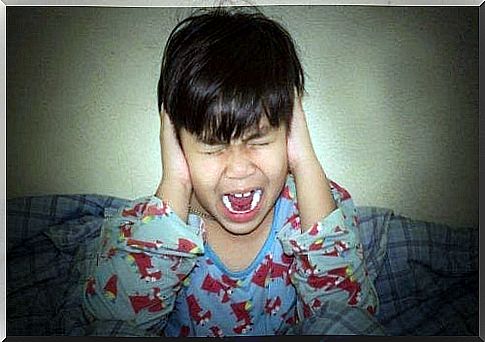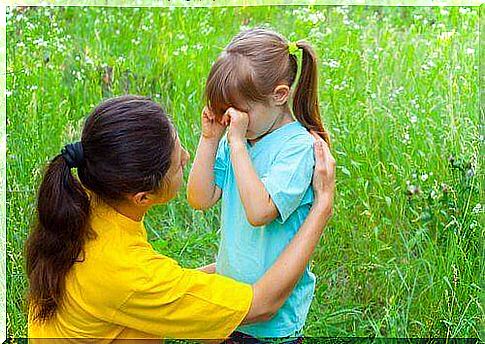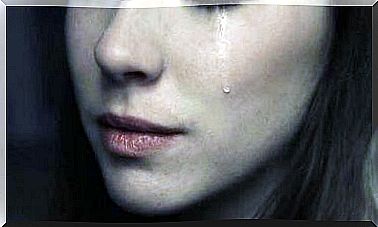5 Tips To Prevent Children’s Anger Outbursts

Between the ages of 2 and 5, any child can have a fit of anger. These outbursts of anger and frustration make parents feel guilty and ask questions. In the following, we will present 5 tips to prevent children’s anger attacks.
Ideally, you should be able to prevent situations that trigger these outbursts of anger. Sometimes you will succeed brilliantly, other times you will fail. Whatever the situation, don’t despair. Keeping calm is the key to solving any such problem.

5 tips to prevent children’s anger attacks
Children’s outbursts of anger are a result of their emotional development. Children begin to feel, recognize and express emotions such as anger or frustration. Although when they grow up they will be able to better manage these outings, when they are small I know nothing about controlling emotions.
From the age of 2, children begin to feel independent. They realize that what they want does not always coincide with what their parents want. The children’s outbursts of anger occur precisely because the little ones want to impose their newly discovered will and subject their parents to tests.
It is essential to understand that outbursts of anger are more common in some children than in others. Every child has a certain temperament, which determines how he will react to the emotions he faces. Even siblings who are raised in the same way may have different outbursts of anger and whims.

Here are 5 tips to prevent children’s anger attacks. Put them into practice before your little ones get carried away by the wave of emotions they face.
1. Avoid unnecessary defiance
There are things that your children “must do” or “are not allowed to do.” But assess carefully what these things are and whether the imposed measure is really needed. It’s a good idea to let them feel in control for a few moments before doing what they are asked to do.
For example, it is winter, and your child must wear a thick jacket. But he refuses. If you can wait a few minutes before pressing him to get dressed, why not do it?
When you force them, the children burst out because they feel they have no choice. Let the little one “decide” for a few minutes that he doesn’t need to put on his jacket. When he begins to feel the cold outside, he will dress himself.
2. Anticipate frustrating situations
If a long day full of obligations awaits you with your child, arm yourself patiently. Take toys, water and something to nibble on with you. A long day full of boring activities for children can generate outbursts of anger.
If you are doing something that children like, such as playing in the park, but it is time to leave, let them know in advance that you will have to end your visit to the park soon. Do not take them by surprise with a sudden departure, because they will react unpleasantly.

Sometimes we provoke children’s outbursts of anger because we subject the little ones to unnecessary stress or we generate situations that they do not understand or that they do not like. Some parents realize that they could have avoided this situation only when they are in the middle of an outburst of anger of the little one.
3. Watch out for the word “no”
Continued use of the word “no” by parents can cause children’s outbursts of anger. Parental refusal leads to disobedience. Think about when you could say “yes.” Also, think about when you could offer an acceptable alternative instead of “no.”
There are situations where you obviously have to say “no”. If the little one inserts a metal object into an electrical outlet, the word “no” is not negotiable.
But not all situations are so extreme or dangerous. Analyze the situations in which you can accept what your children want.
4. Establish clear and reasonable boundaries
Long before the first outbursts of anger occur, it is necessary to establish boundaries that children must learn to respect. They must adapt to the requirements you impose.
Of course, you cannot control everything children do or experience, because excessive control leads to an even stronger desire for independence. But you can’t give them complete freedom either. Children need to know that there are limits they are not allowed to cross and that if they do, there will be serious consequences.
5. Take care of their physical health
Although outbursts of anger are emotional manifestations, they can also be caused by physical elements. When the meal time has passed and the child has not eaten or when the bedtime has passed, and he is still awake, fits of anger and whims may occur because the little one does not know how to express physical discomfort.

Routine is your ally in this case. Follow the schedule in terms of sleep, meals, snacks and bathing. This makes the child feel safe and gives him the rest and satisfaction he needs. In this way, you will avoid the appearance of whims for no reason.
When children get angry…
Even if you have followed all these tips, you may still face an outburst of anger from your children. The first thing you need to do is keep calm. If you get upset, you will only make things worse.
Usually, outbursts of anger take even children by surprise, due to the multitude of emotions that overwhelm them. Therefore, it is important to make sure that they do not injure themselves during such a crisis. The children need your help to calm down.
Speak slowly and calmly. Explain to them what is happening, what your position is and invite them to calm down. Avoid giving in and giving them what they ask of you, because that way they would get the wrong message: that they can get what they want through a fit of rage.
If you are in a public place, most likely someone will tell you to ignore or punish your child. But it does not take into account the opinion of others, because outbursts of anger are emotional problems that must be resolved, not punished or ignored.
Ignoring or even hitting the child in the middle of a fit of anger will not produce any positive effect. If you do such a thing, your child will understand that he must repress his emotions, which will have serious consequences for his future. Your child needs to calm down, so don’t deprive him of your love and understanding.









